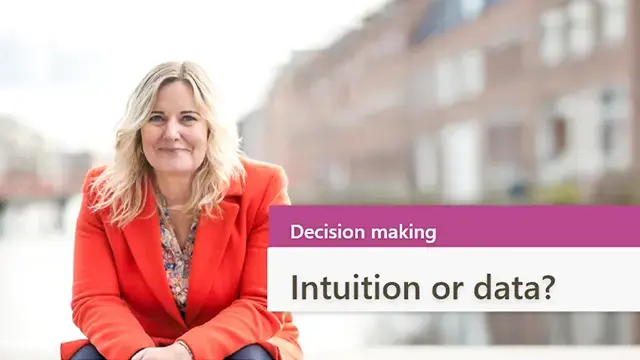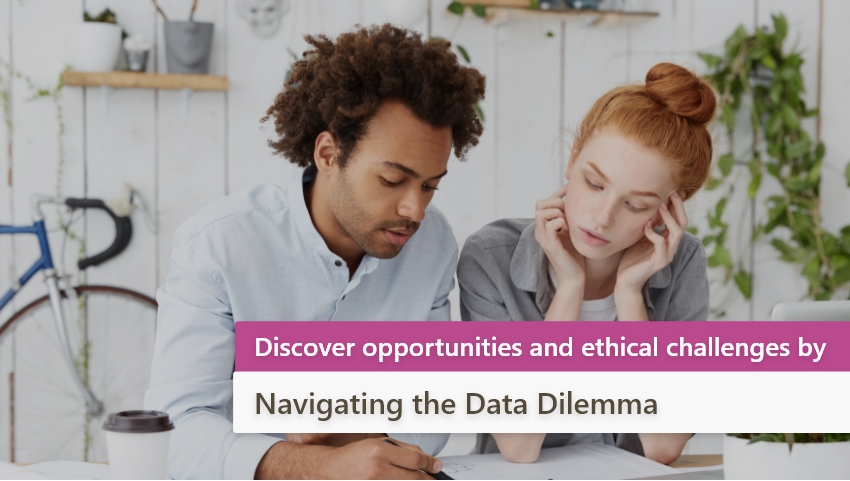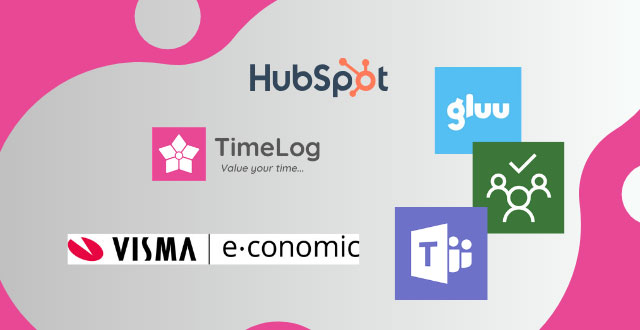Psychological safety: The key to well-being and innovation
7 min read
Time tracking
Build your perfect data foundation for spotless invoicing and deep business insights with easy time tracking.
Project management
Be a world champion project manager. Keep your projects on track - and profitable.
Resource management
Efficiently staff projects and run a predictable business with confidence.
Insights & Reporting
Get smarter - faster - to make clever decisions for long-term growth impact.
Project accounting & Invoicing
Invoice everything - fast and accurate - while staying on top of project finances.
Staff & Salary
Give accountants and HR an intelligent tool to eliminate draining administration.
Financial Systems
TimeLog offers standard integrations for all your favourite financial systems. Save time and reduce manual tasks.
Payroll Solutions
TimeLog offers standard integrations for multiple payroll solutions. Get easy salary administration and only enter payroll information once.
Add-ons
Track time automatically via Outlook, use gamification or find another add-on that can support your business.
Multiple Legal Entities
You can create synergy between your departments and across borders and offices with the Multiple Legal Entities module from TimeLog.
Business Intelligence
Utilise the insights you get from TimeLog to the fullest. Our system is ready to integrate with multiple BI solutions.
Partner Integrations
TimeLog PSA is part of a large ecosystem. Get an overview of all the partner integrations in the TimeLog family.
Economy department
Save 1-2 days a month on your invoicing process.
Project teams
From planning to execution and evaluation. Robust tools for every project manager.
Management teams
Create a performance-driven culture with solid reporting capabilities.
Large enterprises
Enhance operations and performance across entities, countries and departments.
NGOs and non-profit organisations
Simplify internal processes, spend less time on administration, and get documentation in place - at a discounted rate.
Blog
Get inspired to run an even better business with articles, guides and analyses.
Guides, podcasts and webinars
Get access to templates, guides and webinars that help and inspire you.
Help Center
Looking for help material and user guides to the TimeLog system? Look no further. Find all the help you need now.
Get a single source of truth
Discover how companies maintain a single source of truth across borders, departments, and currencies.
Get integrated
Discover the advantages customers gain from utilising our integrations and API.
Reporting in real-time
Explore how others leverage reporting to optimise their processes and make informed decisions.
Get started with resource planning
Discover how other companies thoroughly grasp their resources and enhance their ability to predict future trends.
Improved project financials
This is how the efficient financial toolbox from TimeLog helps project managers and CFOs improve their project financials.
Faster invoicing
Discover how other companies have slashed the time spent on invoicing by 75% - and uncover how you can achieve the same efficiency.
The Story of TimeLog
Get insights on TimeLog and how we can help you grow and evolve your business.
Employees
See who shows up every day to deliver the best PSA solution.
Career
What's life like at TimeLog? Are we hiring? Get the answer here.
Partner
Create even more value for your customers, as well as ours, as a TimeLog Partner.
Premium Service
Online Help Center, tailored onboarding and support from Day 1.
Corporate Social Responsibility
We work to ensure a positive impact on planet, people and businesses.
Security and GDPR
Learn more about how we work to keep your data safe and provide maximum security.
4 min read
Intuition can be a guide in our decision-making process. It can help us make decisions that feel right and authentic to us, even when they don't follow the logical or sensible path. Sometimes our intuition can tell us to take a risk, say no to an opportunity or even to move in a completely different direction.

Listening to our intuition is a learning process, and it can take some time to learn to trust and distinguish between our inner voice and other factors such as data, analysis, fear and judgement.
In this process, data becomes a learning tool - not an irrefutable source of truth.
In reality, many of us are afraid to use our intuition and listen to our gut feelings. Yes, I would even venture to say that we are afraid of not being able to justify our decisions to others if we are wrong, that we will appear inept, naive, or foolish.
Numbers, analysis, and evidence need to be included in the table. In reality, it's often about securing your position and justifying your decisions.
The problem is that in doing so, we miss out on all the available non-quantifiable knowledge. The numbers are only part of the picture.
And you're no less likely to be wrong if you exclude a large part of your experience base from the decision.
If I describe intuition - it's a unique ability that we all possess. It's our inner voice, our instincts, and our feelings that help us navigate through life professionally and personally. Defining intuition can be challenging, but it's often described as a sense of certainty or a sudden insight.
However, our intuition is an integral part of our personal development. By listening to our intuition, we can take responsibility for our lives and business by making decisions that align with our values and deepest desires.
In creating my leadership book Stardust on the Leadership Corridor—formulas for Future Leadership in SME companies, I have met many leaders, CEOs, directors, and owners who use their intuition or, as others call it, their gut feelings in their careers.
I've taken many beatings over the years, so I've learnt to go with my gut.
Erik Lomholt has worked with different cultures worldwide in his career, which is why he has developed his intuition and people skills as a leader.
Regarding decision-making, your intuition and experience can complement data-driven analyses.
This is especially relevant when there isn't enough data to make the right decision, or data is confusing or contradictory. In these cases, intuition and experience can help guide decisions based on past experiences, personal hunches, or emotions.
At the same time, a data-driven approach can help validate and reinforce intuition.
By using data to support or reject intuition, you can make more informed decisions or minimise the risk of misjudgement.
In other words, if you doubt a decision, obtain and collect more data to make the right one.
The same applies to making the right decision as a consultant.
Transparency with data is the first step towards gaining the necessary insight and intuition to create results and a valid data foundation.
For example, the first step could be to start with time tracking to collect data.
Time tracking allows us to analyse our time, select and deselect tasks that create value, and specifically find the time wasters—to adjust our time consumption.
Time tracking and using intuition may seem like opposing approaches, as one focuses on being analytical and accurate, while the other is more emotional and subjective.
However, both approaches can be helpful at different times and situations.
When it comes to creativity and innovation - or thinking outside the box and challenging the hamster wheel of business, your intuition can generate new ideas and perspectives.
Meanwhile, timeframes and analysis can help you assess and validate these ideas and provide a more objective assessment of resources or potential.
When you have an experience of knowing what's right and wrong, even if the numbers say otherwise, stick to that opinion.
Your intuition and sixth sense are talking to you. Make it easier to listen to your intuition by trusting it when it speaks to you.
During my many years of self-employment, there have been several times when I've convinced myself not to listen to my intuition, even though it's pretty sharp and usually proves to be worth listening to.
In those situations, I have gone in a direction where my intuition from the start said, "Don't go there", which has cost me blood, sweat, tears - and a lot of money.
The more I practice, the luckier I am when I also trust my intuition and values
Are you ignoring your intuition, boss?
Whether the intuitive message comes to you regarding an employee, a customer, or something else entirely, it's important to pay attention to it and notice what happens when you ignore it.
Sometimes, we even repeatedly fail to hear it.
It doesn't have to be a warning or a sense that something is wrong. It can also be a positive idea that keeps popping up. If this idea insists on staying with you, it might be worth examining your mindset to find a more honest answer to why you're rejecting it.
Is it fear-based? Or is there another intuitive feeling present simultaneously that says it's not a good idea?
Here, it's all about being sensitive to which emotion or feeling for the idea is the most important - and which makes you the happiest to think about.
Today, I lead and make decisions via my intuition and trust my intuition every time it comes to me, almost like a giant bell ringing in my ears.
My intuition arises in different contexts: in management, with business partners, in traffic, when carrying out a project when I have to say YES to a new customer, etc.
Using data personally also gives me a greater perspective on making the right decisions in different areas of my life.
What will the world look like for you when you need to use facts and data - privately or in your job - and you start using your intuition as a filter to make the right decisions?
The quick answer would be - to decide and do it.
Practice it - practice makes perfect, and your intuition will become stronger and sharper over time. And you'll find yourself making better decisions in all areas of your life.
 Read more
Read more
 Read more
Read more
5 min read

8 min read

1 min read
 Read more
Read more